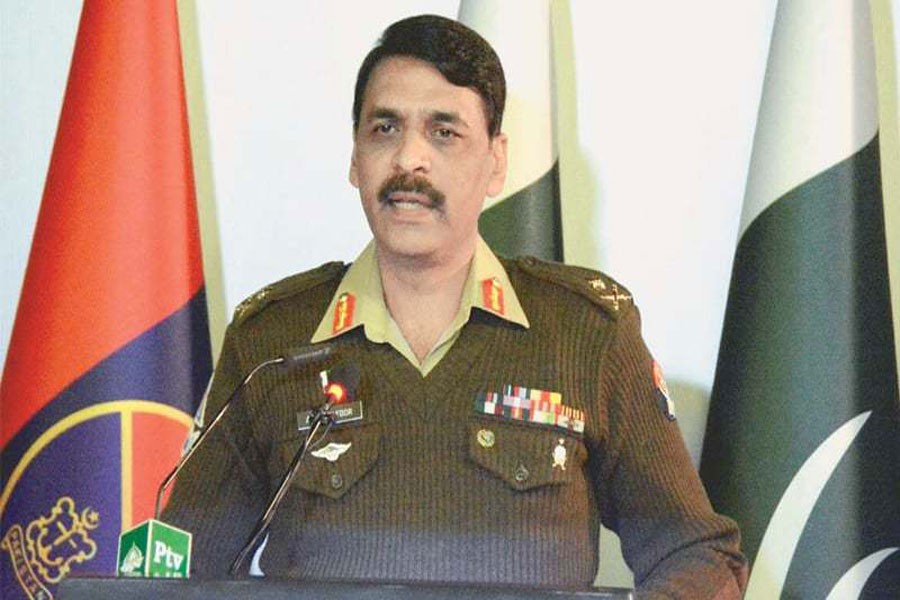The military warned the US against ‘unilateral action’, saying that despite its desire for cooperation on Afghanistan, there could be no compromise on national respect and sovereignty.
“The armed forces are working with friends and want to continue doing so, but there can be no compromise on our national honour.
We do not want a conflict with our friends, but will ensure the security of Pakistan,” Military spokesperson Maj Gen Asif Ghafoor on Thursday told a media briefing, recalling that the country was being threatened with “unilateral action” by the US.
The Inter-Services Public Relations (ISPR) chief spoke in both English and Urdu, in what appeared to be an effort to convey the institutional sentiment to an international audience.
This is perhaps the strongest-ever reaction from Islamabad since US functionaries and statements recently began alluding to the possibility of unilateral action, amidst an ongoing row over alleged terrorist sanctuaries.
Earlier this month, CIA Director Mike Pompeo warned the US would do everything it could to ensure the elimination of “terrorist safe havens” in Pakistan.
Meanwhile, a Pentagon report on Afghanistan, released alongside Mr Pompeo’s statement, said the US could take “unilateral steps in areas of divergence”. The warnings were accentuated further when, during his trip to Afghanistan last week, Vice President Mike Pence said President Trump had put Pakistan on notice.
The military spokesman maintained that the nation would have to stand united in the face of possible unilateral action, saying such challenges could only be tackled through unity.
“Let it be known to all misadventure seekers and probably naïve thinkers that notwithstanding any temporary domestic differences, when it comes to security of our beloved Pakistan, we are all one,” he maintained. But he would not say how serious the threat was, even when asked directly, reports Dawn.
Maj Gen Ghafoor said the “unfounded” US and Afghan narrative had lately acquired a “threatening” tone.
The spokesperson said the US claims were no longer valid after operations Zarb-i-Azb and Raddul Fasaad indiscriminately targeted terrorist of all shades. “We are confident that no terrorist organisation has an organized sanctuary in Pakistan”.
Rejecting the ‘do-more’ mantra, he said that after having fought “imposed and imported war(s) inside Pakistan” and having paid the price, there was a conviction that “we have done enough and we can’t do it any more for anyone”.
Nevertheless, he emphasised, Islamabad remained committed to assisting efforts for peace in Afghanistan due to its interest in seeing stability return to its war-ravaged neighbour.
He went on to list Pakistan’s expectations from the US: ending coercion, engagement based on trust and cooperation, repatriation of Afghan refugees from Pakistan, checking the Indian role in Afghanistan, and getting New Delhi to stop ceasefire violations along the Line of Control (LoC).
This year alone, India has committed 1,813 ceasefire violations, the most since the 2003 truce. These resulted in 52 civilian casualties, as per the statistics shared at the briefing.
Referring to recent Indian claims of cross-LoC actions, which have already been denied by ISPR, he said Pakistan is a “responsible state” with a “professional army” and would not be led into an escalation trap.
“You cannot lure us into unprofessional undertakings to reinforce your beaten narrative of our physical interference in [India-held] Kashmir. Brave young Kashmiris are good enough for you,” he underscored.
Saying that threats had not yet subsided, Maj Gen Ghafoor noted that the current situation was the “new normal” as far as peace and security in the country was concerned.
Responding to a query about former army chief and president retired Gen Pervez Muharraf’s claim that “rogue elements within the establishment” could be involved in Benazir Bhutto’s murder, the spokesperson said there was no rogue element in the Pakistan Army.


